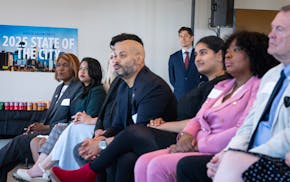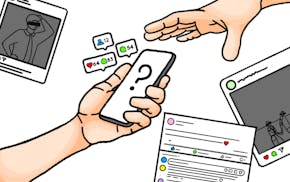Amid this season of family fests and reunions and gatherings galore, you may find yourself with plenty of time — perhaps too much — for talk. If you come up short on conversation starters, try this one: organ donation.
At a holiday party, you ask? Certainly, and here are some reasons why.
Maybe organ donation doesn't sound too festive, but whether we avoid or embrace the reality of death, it is inevitable. And what better time, really, to tackle a tough topic than when you're relaxing with friends and family. (If the conversation is helped along with Christmas cookies or cocktails, all the better.)
Think about this: Wouldn't it be better to discuss the inevitable when it is theoretical, rather than when the dilemma is thrust upon you by a tragic accident? Wouldn't you prefer to consider life-or-death issues when you actually have time to do so? When a loved one faces imminent death, difficult decisions can add to an already heavy burden. Imagine the relief loved ones would feel if they knew and understood the dying person's end-of-life wishes — including his or her desire to be an organ donor.
On any given day in Minnesota, about 3,000 people await organ or tissue donations that will improve or save their lives.
Signing up to be an organ donor has never been easier. You probably know that you can designate the preference on your driver's license, learner's permit or state identification card. You can sign up online with LifeSource, the nonprofit organization based in Minneapolis that coordinates organ, eye and tissue donation across Minnesota, the Dakotas and western Wisconsin. You can get information about donation from the Minnesota Lions Eye Bank, which manages both eye and corneal transplants. And this year, Minnesota became the first state to allow hunters and anglers to register as organ donors when they get their licenses.
A few things you may not know:
• One donor can provide organs, eyes or tissue to as many as 75 recipients.
• The family of the donor incurs no costs related to the donation.
• Organ donors come in all ages, sizes and backgrounds. Your age or health should not keep you from registering as a donor.
• An open casket or viewing still are possible after organ donation, for families who desire it.
• Donation is not even considered until every attempt has been made to save a person's life. The donor's body is treated with the same respect and honor that is given to any patient.
A discussion during holiday festivities may not reach any grand conclusions, but it may plant a seed. Maybe it spurs someone at your table to research living wills. Maybe a party guest shares a story of a friend who needs an organ. Maybe someone around the fireplace considers, for the first time, whether to create an advance directive. Maybe the conversation gives friends and family the courage to start their own discussions about organ donation at a future gathering.
Maybe what starts as a chat about a hypothetical tragedy lights a spark that leads to real heroism: an organ donation that saves lives. That's a cause worthy of a holiday toast.
Kelly Maynard is a pediatric nurse at Hennepin County Medical Center and a part-time copy editor at the Star Tribune.

Rash: At home, Jake Sullivan reflects on events abroad

Opinion: Let's not lose sight of what's best for older adults

Readers Write: Minneapolis politics, Trump's budget, hot tub rentals
